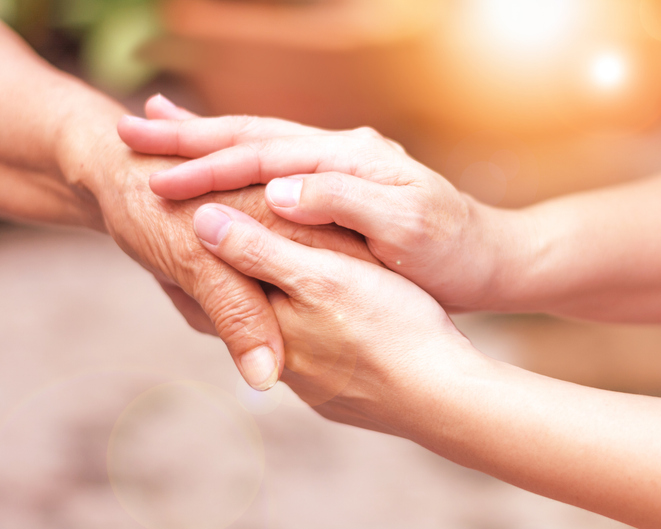
The Emotional and Legal Impact of Elder Abuse on Families
Discovering that a loved one has suffered abuse in a nursing home is a devastating experience that leaves families grappling with a whirlwind of emotions—grief, anger, guilt, and betrayal. Elder abuse, whether physical, emotional, financial, or neglectful, not only harms the victim but reverberates through entire families, disrupting trust and prompting a quest for justice. In the United States, approximately 5 million elder abuse cases occur annually, with many tied to long-term care facilities. This article explores the profound emotional toll of elder abuse on families, the legal avenues available to seek accountability, and how families can navigate this challenging landscape, particularly in places like Decatur, GA, where local resources and legal expertise are available.
The Emotional Toll of Elder Abuse
When families place a loved one in a nursing home, they entrust the facility with their care, expecting compassion and safety. Learning that abuse or neglect has occurred shatters this trust. Families often experience intense guilt, feeling they should have noticed warning signs sooner or chosen a different facility. Anger toward the facility’s staff or administration is common, as is a sense of helplessness when confronting systemic issues in elder care. For example, a loved one’s unexplained injuries, sudden withdrawal, or financial discrepancies can trigger anxiety and grief, as families grapple with the reality of their loved one’s suffering.
The emotional impact extends beyond immediate family members. Siblings may disagree on how to respond, straining relationships. Children of elderly victims may struggle with balancing caregiving responsibilities with their own lives, leading to burnout. According to the National Center on Elder Abuse, emotional distress from abuse can exacerbate health issues for family members, including depression and stress-related conditions. Support groups, such as those offered by the Alzheimer’s Association, can provide a lifeline, offering families a space to share experiences and coping strategies. These resources help families process their emotions while preparing for the next steps, whether that involves advocacy or legal action.
Legal Options for Seeking Justice
Elder abuse is not just a personal tragedy—it’s a violation of legal rights. In Georgia, residents of nursing homes are protected by the Bill of Rights for Residents of Long-Term Care Facilities, which ensures dignity, safety, and proper care. When these rights are violated, families can pursue legal action to hold facilities accountable. Common forms of abuse include physical harm (e.g., bruises or fractures), emotional abuse (e.g., intimidation or isolation), financial exploitation (e.g., unauthorized use of funds), and neglect (e.g., failure to provide adequate food or medical care). Each case requires thorough investigation, often involving medical records, witness statements, and facility inspection reports.
Filing a lawsuit can seek compensation for medical expenses, pain and suffering, and punitive damages to deter future misconduct. The process begins with documenting evidence, such as photographs of injuries or records of financial discrepancies. Families should also file a complaint with Georgia’s Long-Term Care Ombudsman Program, which investigates abuse allegations and advocates for residents. Consulting a nursing home abuse lawyer in Decatur, GA is a critical step, as these professionals specialize in navigating complex elder abuse cases, ensuring families meet Georgia’s statute of limitations (typically two years for personal injury claims). Legal action not only seeks justice but can also prompt systemic changes, as seen in cases like the Thunderbolt Care Center closure, where persistent neglect led to legal and regulatory consequences.
Supporting Loved Ones During Legal Proceedings
Pursuing a lawsuit while supporting a loved one is emotionally taxing. Families can help by maintaining open communication with their loved one, ensuring they feel heard and supported. Regular visits to the nursing home can prevent further abuse and provide emotional comfort. If the loved one has dementia or communication challenges, families should work with medical professionals to assess their condition and document abuse-related injuries. The AARP offers resources on communicating with elderly loved ones, emphasizing patience and empathy during stressful times.
Legal proceedings can be lengthy, often lasting months or years, which adds to emotional strain. Families should seek counseling or support groups to manage stress. The National Consumer Voice for Quality Long-Term Care provides advocacy tools and connects families with local resources, including support networks in Georgia. By combining emotional support with legal action, families can address both the immediate needs of their loved one and the broader goal of accountability.
Moving Forward: Healing and Advocacy
Healing from the emotional impact of elder abuse requires time and community support. Families can channel their experiences into advocacy by sharing their stories to raise awareness or supporting legislative efforts to strengthen elder care regulations. In Georgia, organizations like the Georgia Council on Aging work to improve care standards and provide families with tools to advocate effectively. Joining these efforts can transform personal pain into meaningful change, ensuring safer environments for other residents.
For families in Decatur, GA, taking legal action is a powerful step toward justice. A nursing home abuse lawyer in Decatur, GA can guide families through the legal process, offering expertise in local laws and regulations. By addressing both the emotional and legal dimensions of elder abuse, families can honor their loved one’s dignity while holding negligent facilities accountable.
Healing Through Action: Supporting Loved Ones and Seeking Justice
Elder abuse leaves deep emotional scars on families, compounded by the complexities of seeking justice. By recognizing the signs, pursuing legal recourse, and accessing support resources, families can navigate this challenging journey. Whether through counseling, advocacy, or legal action with a nursing home abuse lawyer in Decatur, GA, families can find a path to healing and accountability. Share your experiences or seek local resources to join the fight against elder abuse, ensuring a safer future for all nursing home residents.


